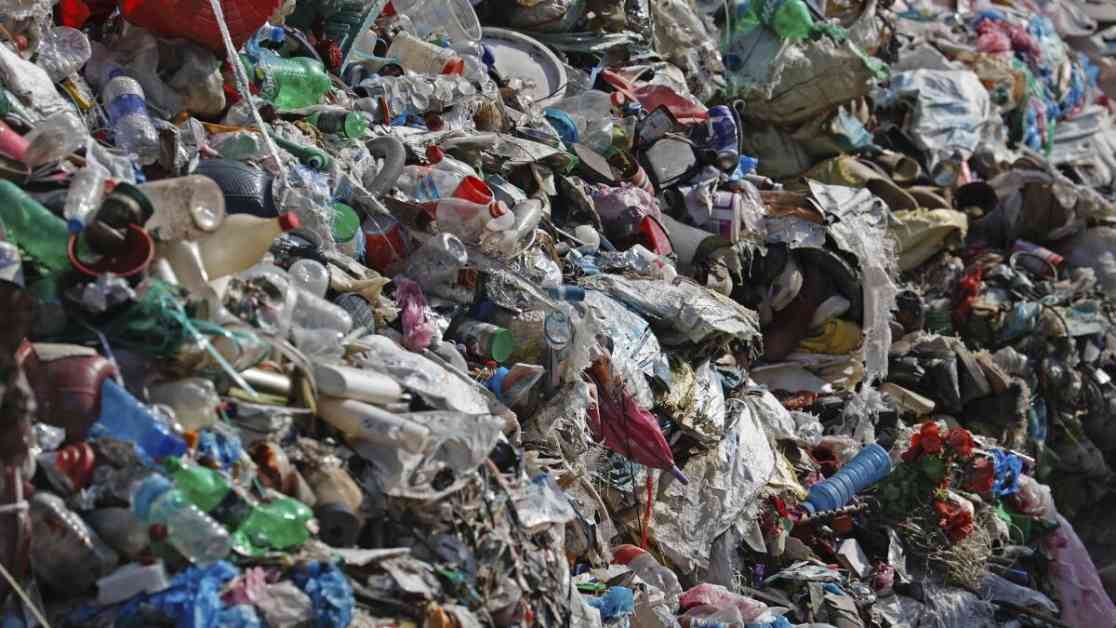Delegates from 175 countries are currently gathered in Busan, South Korea, to discuss a global treaty on plastic pollution. The goal of this treaty is to regulate the full life cycle of plastic, including production, design, and disposal. However, after four rounds of talks, sharp divisions have emerged, leading to concerns that the final treaty may fall short of ambitious goals.
One of the major points of contention is whether the treaty should focus on reducing overall plastic production or improving recycling practices. The U.S., one of the largest producers of plastic waste, has also cast doubts on its commitment to the treaty following the outcome of the presidential election.
Plastic pollution has reached alarming levels globally, with production doubling between 2000 and 2019. Very little of the world’s plastic waste is recycled, with just 9% of the 353 million tons of plastic discarded in 2019 being recycled. In the U.S. alone, each person generates an average of 487 pounds of plastic waste annually, with only 4% being recycled.
The consequences of plastic pollution are significant, as plastics do not biodegrade and end up as microplastics in the environment. These microplastics have been found in water, food, and even human placentas. Research has linked microplastics to health issues such as cardiovascular disease.
To address the plastic pollution crisis, researchers suggest implementing policies such as a minimum recycled content mandate for new plastic products, capping new plastic production, imposing a plastic consumption tax, and investing in waste management systems.
However, negotiations for the global treaty face obstacles related to funding, mandatory production caps, and voluntary targets. Poorer countries are calling for wealthier nations to bear more financial costs, while fossil fuel-producing countries oppose mandatory production caps. Environmental activists argue that a recycling-focused solution may not be enough to tackle the root cause of plastic pollution, which is excessive production.
In the United States, there has been a shift in negotiating positions regarding a production cap. However, doubts remain about the country’s commitment to the treaty under the incoming administration, which has a history of rolling back environmental regulations.
The global treaty on plastic pollution is a critical step towards addressing the plastic crisis, but significant challenges remain. It is essential for countries to come together to find common ground and prioritize solutions that will have a lasting impact on reducing plastic pollution worldwide.



























